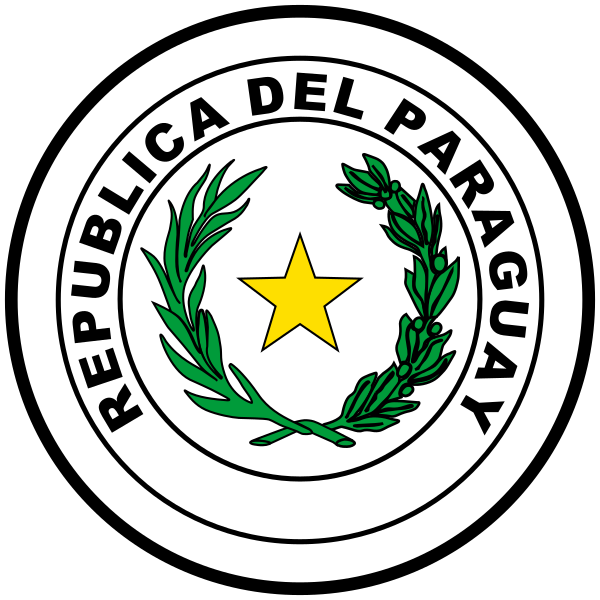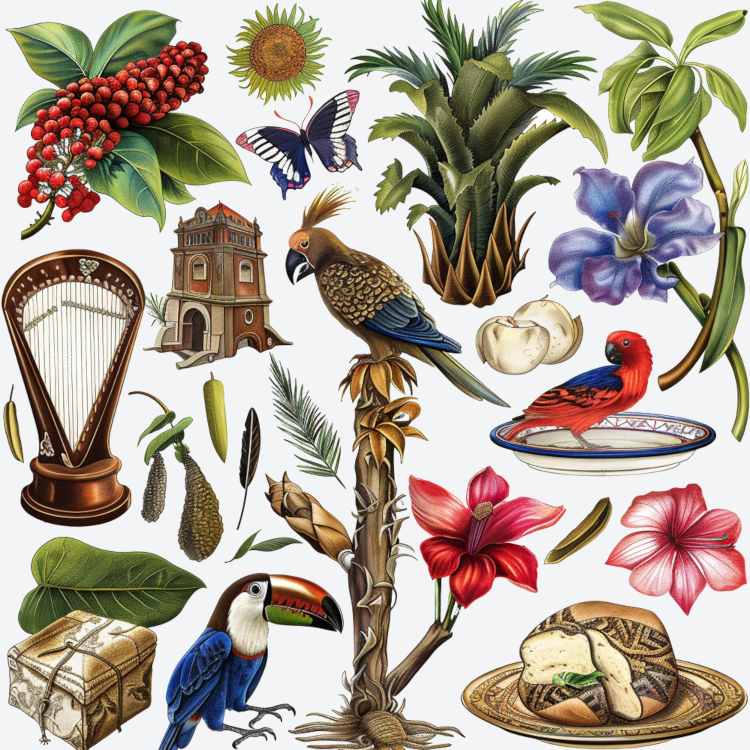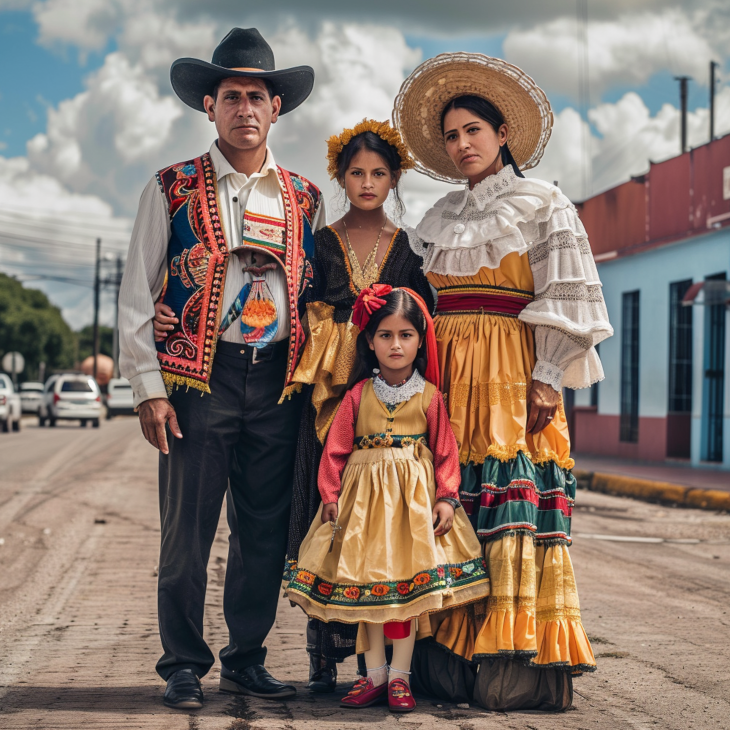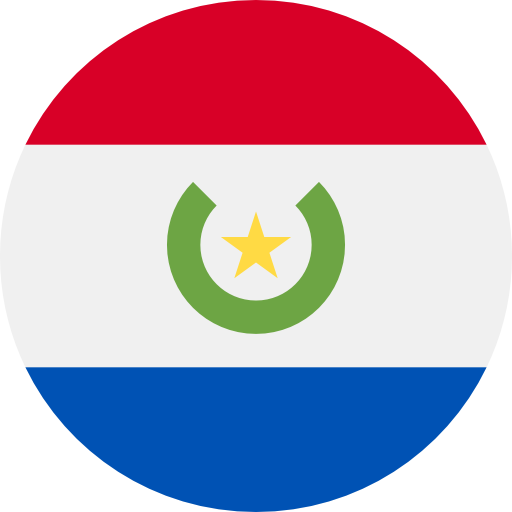About PY

Location
Paraguay is a landlocked country located in South America, bordered by Argentina to the south and southwest, Brazil to the east and northeast, and Bolivia to the northwest.
Capital
The capital city of Paraguay is Asunción.
Population
As of the latest estimates, Paraguay has a population of approximately 7.3 million people.
Area
Paraguay covers a total land area of about 406,752 square kilometers (157,048 square miles), making it one of the smallest countries in South America.
Official Language
The official languages of Paraguay are Spanish and Guarani. Guarani is an indigenous language widely spoken and used in everyday life by a significant portion of the population.
Government
Paraguay is a presidential republic with a democratic system of government. The President of Paraguay serves as both the head of state and government and the country operates under a multi-party political system.
Independence
Paraguay gained independence from Spain on May 14, 1811.
Currency
The currency of Paraguay is the Paraguayan Guarani (PYG).
Economy
Paraguay has a mixed economy with a strong agricultural sector. The country is a major producer and exporter of agricultural products, including soybeans, corn, wheat, and cattle. Other significant sectors of the economy include manufacturing, services, and commerce. Paraguay has experienced steady economic growth in recent years, although poverty and inequality remain challenges.
Natural Features
Paraguay is characterized by its diverse landscapes, including vast plains (known as the Chaco region), tropical forests, and the Paraguay River, which divides the country into two regions: the Eastern Region (or Eastern Paraguay) and the Western Region (or Western Paraguay).
Culture
Paraguay has a rich cultural heritage influenced by indigenous traditions, Spanish colonialism, and European immigration. Traditional Paraguayan music, dance, and arts, such as the polka-style dance called the "Polca Paraguaya" and the harp and guitar music known as "música folklórica," are integral parts of the country's cultural identity.
Religion
Christianity is the predominant religion in Paraguay, with Roman Catholicism being the largest denomination. Indigenous beliefs and practices also play a significant role in the cultural and religious landscape of the country.
Infrastructure
Paraguay has a developing infrastructure, with improvements being made to roads, telecommunications, and utilities. However, infrastructure development remains a priority for the government to support economic growth and improve living standards.
International Relations
Paraguay maintains diplomatic relations with countries around the world and is a member of various international organizations, including the United Nations, the Organization of American States (OAS), and Mercosur (Southern Common Market).
Tourism
Paraguay is increasingly attracting tourists interested in exploring its natural beauty, cultural heritage, and historical sites. Popular tourist destinations include the capital city of Asunción, the Jesuit Missions (a UNESCO World Heritage Site), the Itaipu Dam (one of the world's largest hydroelectric dams), and the natural wonders of the Chaco and Pantanal regions.

National Items of Paraguay
Bare-Throated Bellbird
The Bare-Throated Bellbird (Procnias nudicollis) is the national bird of Paraguay. Known for its distinctive, loud call, it symbolizes the country's rich biodiversity and natural beauty.
Mburucuyá (Passion Flower)
The Mburucuyá (Passiflora caerulea), also known as the Passion Flower, is the national flower of Paraguay. Its intricate and beautiful blossoms symbolize the natural splendor and cultural heritage of the country.
Lapacho Tree
The Lapacho tree (Tabebuia impetiginosa), also known as the Pink Trumpet Tree, is significant in Paraguay. It is known for its vibrant pink flowers and symbolizes strength, resilience, and the beauty of the natural environment.
Tereré
Tereré is a traditional Paraguayan drink made from yerba mate and cold water, often flavored with herbs. It represents the country's cultural heritage, social traditions, and the importance of sharing and community.
Ñandutí
Ñandutí is a traditional Paraguayan lace, characterized by its intricate patterns and spider-web-like design. It symbolizes the country's artisanal craftsmanship and cultural heritage.
Chipá
Chipá is a traditional Paraguayan cheese bread made from cassava flour and cheese. It represents the rich culinary traditions and local flavors of Paraguay.
Harps
The Paraguayan harp is a significant musical instrument in the country's traditional music. It symbolizes Paraguay's musical heritage and cultural identity.
Francisco Solano López
Francisco Solano López, a national hero, symbolizes Paraguay's history and struggle for independence. He represents patriotism and the spirit of the Paraguayan people.
Paraguayan Palm (Copernicia alba)
The Paraguayan Palm, known for its distinctive fan-shaped leaves, symbolizes the natural beauty and ecological diversity of Paraguay.
Jesuit Missions of La Santísima Trinidad de Paraná and Jesús de Tavarangue
These historical sites, UNESCO World Heritage sites, symbolize the rich cultural and religious history of Paraguay and the influence of the Jesuit missions in the region.

This anthem symbolizes the spirit of freedom and patriotism of the Paraguayan people, honoring their struggle for independence and their commitment to unity and equality.
The national anthem of Paraguay is called "Paraguayos, República o Muerte" in Spanish, which translates to "Paraguayans, Republic or Death" in English. Here are the lyrics in Spanish along with an English translation:
Paraguayos, República o Muerte,
Nuestro brío nos dio libertad.
Ni opresores, ni siervos alientan,
donde reinan unión e igualdad.
A los pueblos, sabios condujeron,
nuestros padres, con bizarría y ardor;
y la Patria, con laurel cubrieron
a estos bravos, a estos hijos del honor.
Coro:
¡Viva el Paraguay, perpetuo honor!
¡Firma el bravo su glorioso ideal!
¡Muerte al déspota, paz al traidor,
y eterno laurel a quien supo luchar!
Libertad o con gloria morir!
Es el voto que el alma lanzó;
y este grito triunfal que el eco repetirá,
Libertad, Libertad, Libertad!


